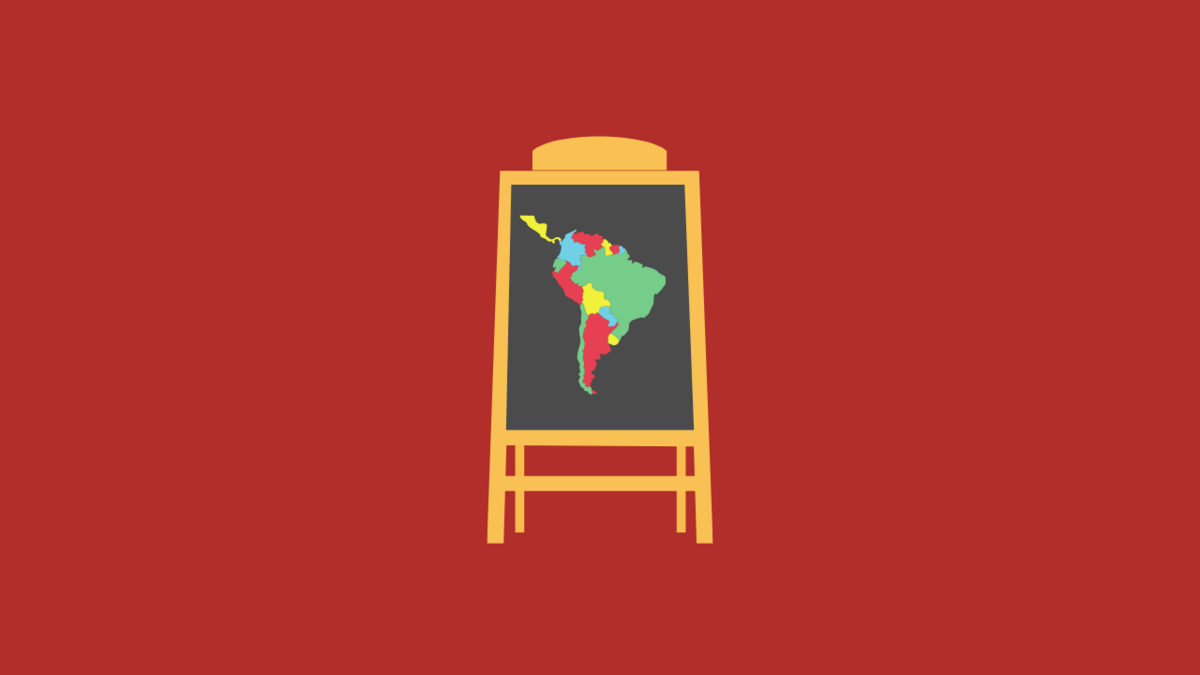Change of Menu

Hi ZipLawyer! I'm Ludo Lugnani and this is ZipLaw: an independent newsletter covering the best commercial and legal news from the day. We explain how each story impacts law firms and their clients so that you can stand out in interviews and applications.
Today's newsletter is a ~7 min read:
- 🇨🇳 Change of Menu: China's trade with South America may be ready to boom. What does this mean for Law Firms and their Clients?
- ➕ Plus: Brazil and Argentina's new common currency, EU recession, China's Covid Toll and European companies need to invest big.
🤿 Deep Dive
Change of Menu
In brief:
- China opening up is good news for South American countries but they may need to adjust to a new menu of exports.
The Party is back on!
Buckle up because the South American trade party is back on! As China reopens after almost three years of lockdowns, some countries in Latin America are preparing for another boom in trade activity. China is the world's biggest consumer of commodities. The country consumes more than 16% of the world’s oil, over half of its copper and more than three-fifths of its iron ore. As the Chinese economy continues to grow, so does its appetite for these goods.
- Data Time: Trade between China and Latin America has grown significantly over the past two decades, with China now accounting for 18% of the region's trade. 67% of Chile's copper exports go to China meanwhile Brazil sends 70% of its soybean exports to the country.
But wait, there's a catch
The relationship between China and Latin America is not all sunshine and rainbows. China's policy banks have not approved any new loans to the region since 2020 and Chinese investment in the region has fallen in recent years. This means that the trade boom might not last as long as South American countries would wish for. This is partly due to big economic trends such as the slowdown in the property market, and the fallout from a trade war with the US.
A change of menu
As China's economy shifts towards services and high-tech goods, experts predict that its imports and investments abroad will change. This means that even if engagement with South America increases again as China reopens, it is unlikely to follow the same pattern as before. Chinese investment in the region will be more selective and focused on sectors such as electric vehicles and renewable energy, which align with China's goals and priorities.
Question is, can South America adapt to the change?
How does this Impact Law Firms and their Clients?
Reminder: In this section, we analyse how the story we just discussed impacts law firms' clients, and which legal departments will be most affected by it. These are all the details you need to stand out in applications and interviews!
💼 What does this mean for law firm's clients?
South American companies
- How are they affected? Latin American companies that export goods to China, or import goods from China, would be most affected by the changes in trade and investment patterns between the two regions. For example, a Latin American mining company that exports copper to China would be affected by changes in demand for copper and prices in the Chinese market. Additionally, a Latin American agricultural company that imports machinery from China would be affected by changes in import regulations and tariffs.
Lithium Producers:
- How are they affected? As China's economy shifts towards services and high-tech goods, there may be a shift in demand for lithium, a key component in electric vehicles and renewable energy. If China's demand for lithium increases, this could be positive for lithium producers in Latin America as they would have increased demand for their products.
Governments:
- How are they affected? Governments in Latin America that have trade agreements or diplomatic relations with China could benefit or struggle from China's changing import approach. A country like Chile which is highly reliant on exports to China may struggle if this demand slows down (38% of its exports go to China, over three-quarters of which are copper). On the other hand, countries that become key producers of desired items like lithium could hugely benefit from the shift. Aside from this, the slowing lending from China is bad news for the region as it cuts out a source of funds for investment in the countries economies.
Chinese companies
- How are they affected? Chinese companies that have invested in Latin America may also be affected by changes in investment patterns, as Chinese investment in the region is likely to be more selective, and focused on sectors such as electric vehicles and renewable energy, which align with China's goals and priorities. This could decrease investment opportunities for Chinese companies in certain sectors and potentially impact their growth and profitability.
⚖ Which legal departments would this impact?
Commercial
- Advising: South American, and Chinese companies looking to grow their international exports and imports.
- Trend: Increase in work because as the Chinese economy grows, Latin American companies may look to expand their business operations, and negotiate new contracts.
- Current work: Advising on the formation of new business operations, compliance with corporate governance rules, and negotiating and drafting contracts.
- Future work: They will advise on the legal implications of exporting goods to China, including compliance with corporate governance rules, and negotiating and drafting supply contracts. It will be crucial to insert clauses to account for, and protect either party from an interruption in supply due to governmental strategy e.g. if China shifts to a large reduction in copper imports.
Trade
- Advising: Latin American companies on legal matters related to their international trade operations, specifically with China.
- Trend: Increase in work because as the Chinese economy grows, Latin American companies may look to increase their exports of goods to China.
- Current work: Advising on compliance with international trade agreements, customs regulations, and export controls.
- Future work: Advising on any new trade agreements or regulations as trade relations evolve, handling disputes arising from export operations, and ensuring compliance with any new regulations related to trade relations with China. This will become crucial if the relations between the two countries change.
Intellectual property
- Advising: Latin American companies on legal matters related to protecting and enforcing their intellectual property rights when exporting to China.
- Trend: They would see an increase in work as Latin American companies may look to export patented goods to China as trade relations improve.
- Current work: Advising on patent, trademark, and copyright law, and handling intellectual property disputes.
- Future work: Advising on any new regulations related to exporting patented goods to China, handling disputes arising from intellectual property infringements, and ensuring compliance with any new regulations as trade relations evolve. This could become particularly significant if lithium production leads to an increase in proprietary technology for electric vehicles moving between China and South America.
Litigation
- Advising: Latin American companies on legal matters related to resolving disputes arising from their business and trade operations with China.
- Trend: Increase in work as disputes may arise from increased business and trade operations between Latin America and China.
- Current work: Advising on compliance with laws, regulations and policies, and handling disputes related to trade, contracts, and intellectual property.
- Future work: Advising on any new regulations related to disputes arising from trade relations with China, handling disputes arising from increased business and trade operations with China, and ensuring compliance with any new regulations as trade relations evolve.
Banking and Finance
- Advising: Latin American companies on legal matters related to obtaining loans from Chinese banks.
- Trend: Increase in work as Latin American companies may look to obtain loans from Chinese banks to finance their increased business operations.
- Current work: Advising on compliance with banking regulations, negotiating and drafting loan agreements.
- Future work: Advising on any new regulations related to obtaining loans from Chinese banks, handling disputes arising from loan agreements with Chinese banks, and ensuring compliance with any new regulations as trade relations evolve.
🔮 What trends does this highlight?
China's economy is on the rise and its hungry for commodities. This is good news for South American countries that have plenty to offer, from copper to soybeans and even lithium.
However, we can see that China's investment in Latin America is becoming more selective, focusing on sectors such as electric vehicles and renewable energy which align with China's goals and priorities. This is not surprising given that China is moving towards a greener economy and reducing its dependence on fossil fuels.
Electricity is another key area. Between 2017 and 2021 investments in this sector made up 71% of Chinese mergers and acquisitions in the region. In 2021 two Chinese state-owned firms splurged $6bn collectively to buy Chilean and Peruvian electricity companies. Both projects were among the largest foreign investments ever received by either country.
Additionally, we can see that Chinese lending to Latin America has slowed down, with no new loans approved by Chinese policy banks since 2020. This was partly due to bad experiences. China struggled to recover millions of dollars in oil-for-loans deals with Venezuela after Nicolás Maduro came to power in 2013 and oil prices fell. Elsewhere, pushback from environmental groups also stalled investments, as did shifting policies under different administrations.
📰 News Spotlight
🌎 Common Currency
Brazil and Argentina will this week announce that they are starting preparatory work on a common currency, in a move which could eventually create the world’s second-largest currency bloc. The initial focus will be on how a new currency, which Brazil suggests calling the “sur” (south), could boost regional trade and reduce reliance on the US dollar.
💸 Avoiding a Recession?
Experts predict the eurozone will avoid recession this year According to a widely-watched survey of economists, the eurozone will avoid a recession this year. The improved outlook is linked to lower energy prices, bumper government support and the earlier-than-anticipated reopening of the Chinese economy.
🌍 Business Battles
Germany and France warned that European businesses will need to unleash investments on a nearly unparalleled scale to keep from falling behind US and Chinese firms as countries revamp their economies to make them more climate-friendly. German Chancellor Olaf Scholz and French President Emmanuel Macron met in Paris Sunday to discuss how the European Union should respond to President Joe Biden’s Inflation Reduction Act, which includes roughly $500 billion in new spending and tax breaks over a decade to benefit US companies.
🦠 China's Covid Toll
China said its Covid-related death toll topped more than 12,600 in the week before the Lunar New Year holiday, while a top health official suggested more than 1.1 billion people had been infected since the virus controls were removed late last year.






